第96章
It was possible for Maslova's case to come before the Senate in a fortnight, at which time Nekhludoff meant to go to Petersburg, and, if need be, to appeal to the Emperor (as the advocate who had drawn up the petition advised) should the appeal be disregarded (and, according to the advocate, it was best to be prepared for that, since the causes for appeal were so slight).
The party of convicts, among whom was Maslova, would very likely leave in the beginning of June. In order to be able to follow her to Siberia, as Nekhludoff was firmly resolved to do, he was now obliged to visit his estates, and settle matters there.
Nekhludoff first went to the nearest, Kousminski, a large estate that lay in the black earth district, and from which he derived the greatest part of his income.
He had lived on that estate in his childhood and youth, and had been there twice since, and once, at his mother's request, he had taken a German steward there, and had with him verified the accounts. The state of things there and the peasants' relations to the management, i.e., the landlord, had therefore been long known to him. The relations of the peasants to the administration were those of utter dependence on that management. Nekhludoff knew all this when still a university student, he had confessed and preached Henry Georgeism, and, on the basis of that teaching, had given the land inherited from his father to the peasants. It is true that after entering the army, when he got into the habit of spending 20,000 roubles a year, those former occupations ceased to be regarded as a duty, and were forgotten, and he not only left off asking himself where the money his mother allowed him came from, but even avoided thinking about it. But his mother's death, the coming into the property, and the necessity of managing it, again raised the question as to what his position in reference to private property in land was. A month before Nekhludoff would have answered that he had not the strength to alter the existing order of things; that it was not he who was administering the estate; and would one way or another have eased his conscience, continuing to live far from his estates, and having the money sent him. But now he decided that he could not leave things to go on as they were, but would have to alter them in a way unprofitable to himself, even though he had all these complicated and difficult relations with the prison world which made money necessary, as well as a probable journey to Siberia before him. Therefore he decided not to farm the land, but to let it to the peasants at a low rent, to enable them to cultivate it without depending on a landlord. More than once, when comparing the position of a landowner with that of an owner of serfs, Nekhludoff had compared the renting of land to the peasants instead of cultivating it with hired labour, to the old system by which serf proprietors used to exact a money payment from their serfs in place of labour. It was not a solution of the problem, and yet a step towards the solution; it was a movement towards a less rude form of slavery. And it was in this way he meant to act.
Nekhludoff reached Kousminski about noon. Trying to simplify his life in every way, he did not telegraph, but hired a cart and pair at the station. The driver was a young fellow in a nankeen coat, with a belt below his long waist. He was glad to talk to the gentleman, especially because while they were talking his broken-winded white horse and the emaciated spavined one could go at a foot-pace, which they always liked to do.
The driver spoke about the steward at Kousminski without knowing that he was driving "the master." Nekhludoff had purposely not told him who he was.
"That ostentatious German," said the driver (who had been to town and read novels) as he sat sideways on the box, passing his hand from the top to the bottom of his long whip, and trying to show off his accomplishments--"that ostentatious German has procured three light bays, and when he drives out with his lady---oh, my!
At Christmas he had a Christmas-tree in the big house. I drove some of the visitors there. It had 'lectric lights; you could not see the like of it in the whole of the government. What's it to him, he has cribbed a heap of money. I heard say he has bought an estate."
Nekhludoff had imagined that he was quite indifferent to the way the steward managed his estate, and what advantages the steward derived from it. The words of the long-waisted driver, however, were not pleasant to hear.
A dark cloud now and then covered the sun; the larks were soaring above the fields of winter corn; the forests were already covered with fresh young green; the meadows speckled with grazing cattle and horses. The fields were being ploughed, and Nekhludoff enjoyed the lovely day. But every now and then he had an unpleasant feeling, and, when he asked himself what it was caused by, he remembered what the driver had told him about the way the German was managing Kousminski. When he got to his estate and set to work this unpleasant feeling vanished.
Looking over the books in the office, and a talk with the foreman, who naively pointed out the advantages to be derived from the facts that the peasants had very little land of their own and that it lay in the midst of the landlord's fields, made Nekhludoff more than ever determined to leave off farming and to let his land to the peasants.